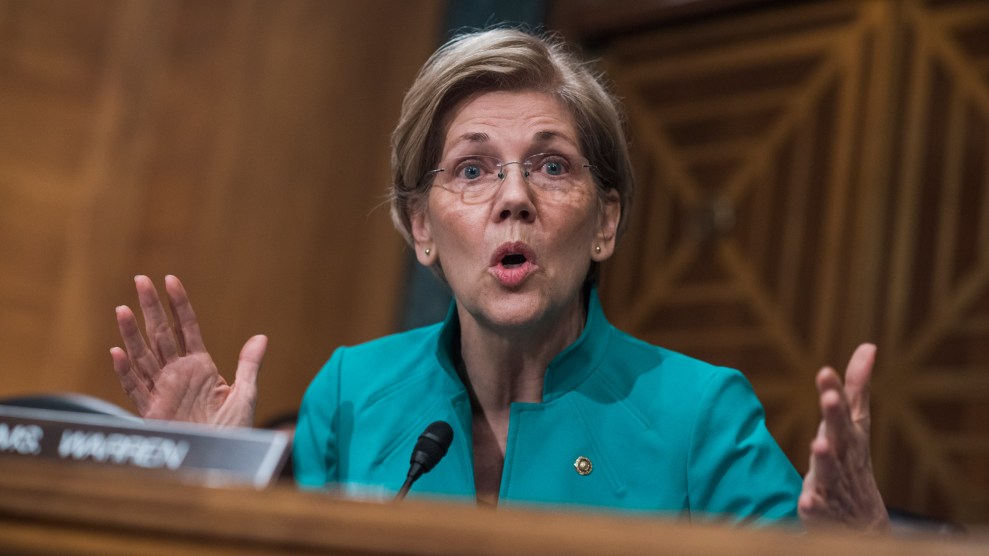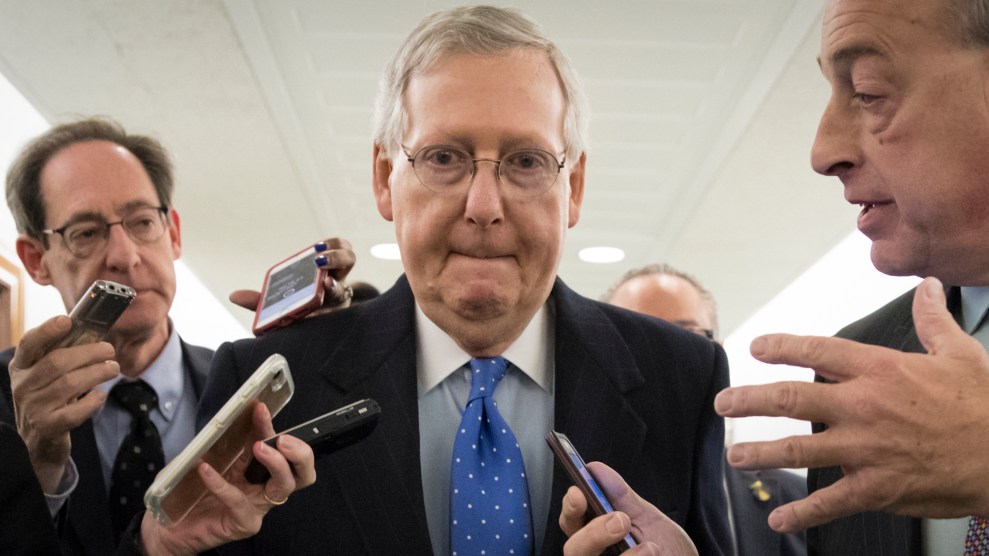
Sen. Elizabeth Warren, D-Mass., questions Treasury Secretary Steve Mnuchin during a Senate Banking Committee hearing earlier this year. Tom Williams/CQ Roll Call via AP Images
Update: On Thursday night, the Treasury Department’s Inspector General’s office launched an inquiry into whether the department performed an analysis of the Senate tax bill. The Inspector General’s office counsel Rich Delmar told the Los Angeles Times it was a “top priority.”
Treasury Secretary Steve Mnuchin has been promising for months that his department is working hard on an analysis of a $1.5 trillion tax reform bill currently under consideration by the Senate, noting time and time again that the bill practically pays for itself. He also promised to release the analysis in full. But on Thursday, just a day before the Senate is expected to vote on the legislation, Sen. Elizabeth Warren (D-Mass.) is wondering: So, where is that assessment?
Earlier in the day, the New York Times reported that legislators haven’t seen the analysis and that is likely because it hasn’t been done:
Those inside Treasury’s Office of Tax Policy, which Mr. Mnuchin has credited with running the models, say they have been largely shut out of the process and are not working on the type of detailed analysis that he has mentioned. An economist at the Office of Tax Analysis, who spoke on the condition of anonymity so as not to jeopardize his job, said Treasury had not released a “dynamic” analysis showing that the tax plan would be paid for with economic growth because one did not exist.
So later in the day, the Massachusetts senator sent a sharply worded letter to the Treasury Department’s inspector general’s office, calling on it to investigate the “alleged economic analysis” of the Republican tax bill.
“Either the Treasury Department has used extensive taxpayer funds to conduct economic analyses that it refuses to release because those analyses would contradict the Treasury Secretary’s claims,” Warren writes, “or Secretary Mnuchin has grossly misled the public about the extent of the Treasury Department’s analysis. I am deeply concerned about either possibility.”
Warren specifically wants evidence as to whetherTreasury Department resources have been used to conduct assessments of any Republican legislation to overhaul the tax code and whether there has been any “political interference” in examining the bills.
At the Washington Ideas conference back in September, Mnuchin argued that the tax plan would generate enough economic growth to offset the lost revenue from lower tax rates, adding: “Not only will this tax plan pay for itself, but it will pay down debt.” But, as Mother Jones has reported, several nonpartisan groups and economists have insisted that any of the Republican claims that the tax plan would “pay for itself” are completely wrong. And again on Thursday, Congress’ nonpartisan Joint Committee on Taxation agreed with that sentiment, noting in a new analysis that the sweeping tax bill would actually add $1 trillion to the federal deficit over the next decade.
Read the full letter here:
















